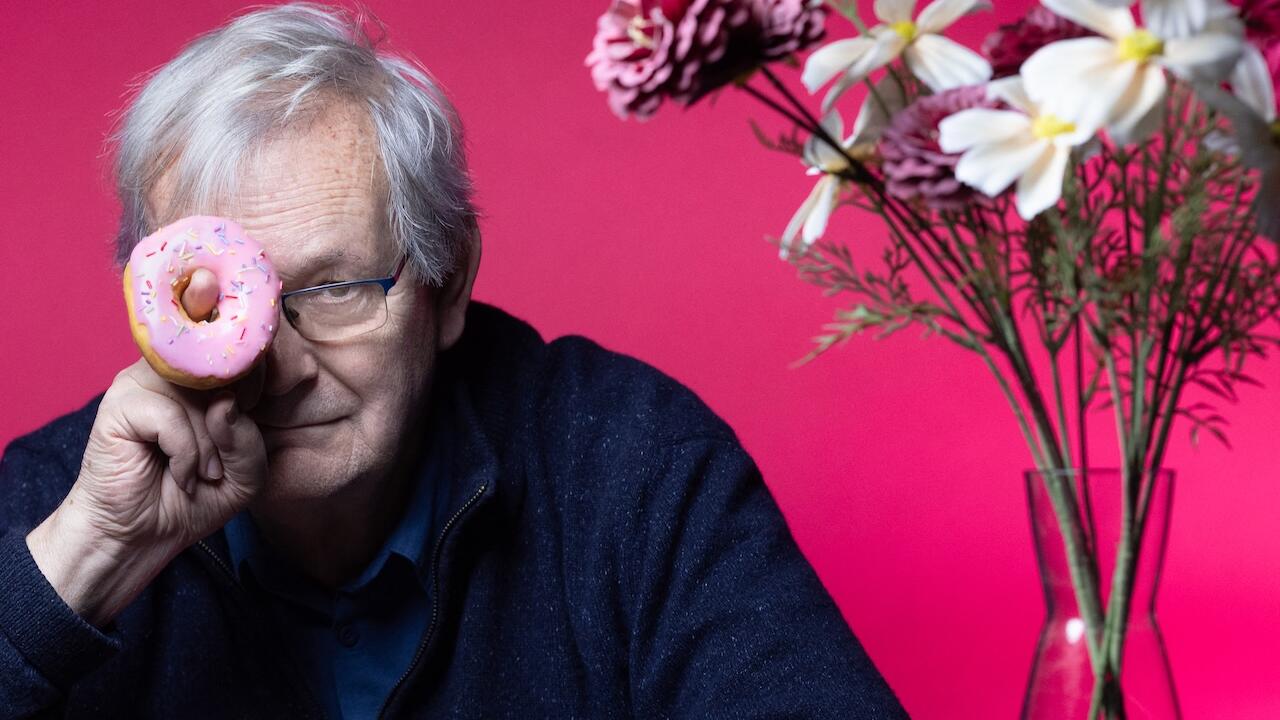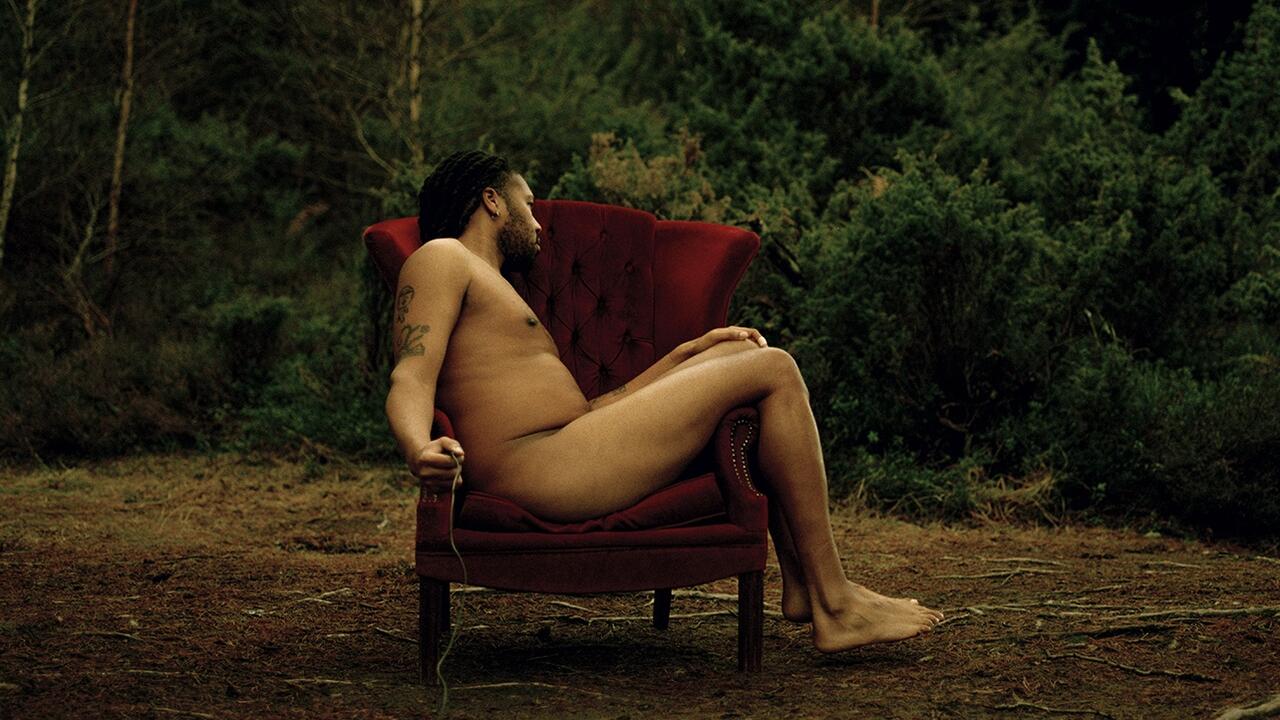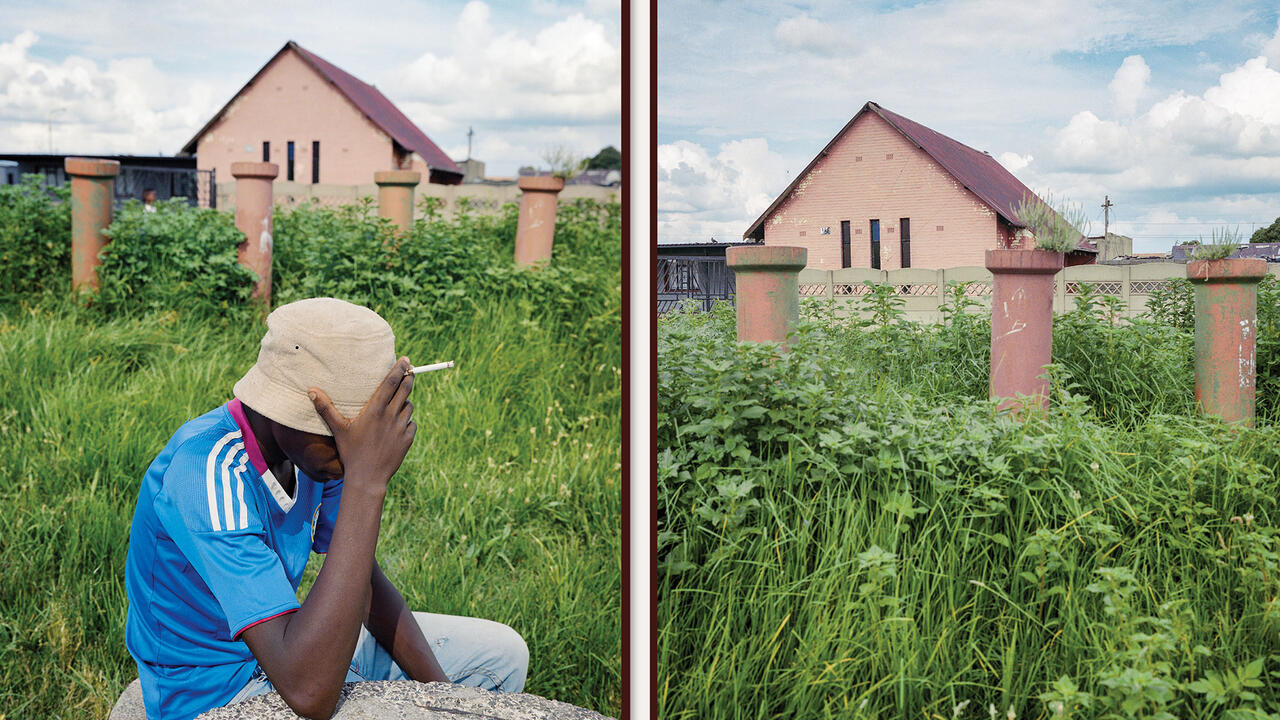Larry W. Cook Photographs the Vulnerability of Black Fatherhood
The artist’s current exhibition at Weiss Berlin is a nuanced critique of the notion of Black masculinity
The artist’s current exhibition at Weiss Berlin is a nuanced critique of the notion of Black masculinity

In a cosy yet sparsely furnished living room, a young girl in pink, Disney-themed pyjamas sits on a low folding chair cradling a doll and gazing off to one side. From behind, her father wraps his arms around her in a similarly protective manner. Next to him on the sofa, a comb and a tub of hair lotion suggest that they have been interrupted during the girl’s hair-care routine. Fatherhood 3 (2018) is one of a series of photographs by the Washington-based artist Larry W. Cook’s, who brilliantly uses paternity to problematize notions of Black masculinity and carcerality in the American imaginary. Currently on view at Weiss Berlin, this presentation marks the artist’s first solo exhibition in Europe – and sadly the gallery’s last ever exhibition.

In When Dad Comes Home 4 (2013), two found photographs of a man and his three children are placed side by side. The siblings, noticeably younger in the left-hand image, are feigning happiness with empty smiles. Although not immediately evident, the airbrushed backdrops of fictional landscapes, coupled with the work’s title, suggest that these are prison portraits, taken by an assigned photographer and purchased at the end of visiting hours as keepsakes: meagre evidence of fatherhood and family. The passage of time is vivid in the age differences of the children between the two pictures. Measured against the hope of a father coming home, this temporal shift feels fateful for the drastic absence that it signifies. Here, ‘doing time’ speaks not only to the loss of life’s daily freedom but to privation from family.
Like many of Cook’s works, When Dad Comes Home 4 raises important questions about absence, in relation to the lives of the artist’s subjects: Black men. In his series ‘The Visiting Room’ (2019), men squat in front of fictional cityscapes and landscapes, with their backs turned to the viewer, as if they are admiring these illusory vistas. Featuring cues easily overlooked by the uninitiated – Timberland boots, durags, dreadlocks – and the overarching theme of caring masculinity, Cook’s critique of the ways in which Black fatherhood often constitutes absence is evocative. The lack of Black men in many arenas – particularly in constellations of care such as the family – has come to be expected: a clichéd, self-fulfilling prophecy. Certain narratives through which this absence is (re)told – ones that usually omit significant factors such as mass incarceration – are conducive to its perpetuation.

In Nuestra America: Reinventing a Subaltern Paradigm of Recognition and Redistribution (2001), Portuguese academic Boaventura de Sousa Santos describes the silence that surrounds particular experiences and the ways in which these silences are, in fact, actively created via specific processes. This ‘sociology of absence’, as Santos terms it, lends itself well to analysing the interstices of fatherhood, masculinity and incarceration conjured in Cook’s images. Absence is variously parsed in the artist’s photographs – be that in the form of a framed picture of a deceased son in (Fatherhood 4, 2018), or the incarcerated fathers and sons in ‘The Visiting Room’ who are absent from their families, and who, by turning away, absent themselves from the viewer’s gaze.

Cook’s initial exploration of fatherhood, in earlier works such as ‘When Dad Comes Home’ (2013), delved into how it sustains the incarcerated, and how struggling to maintain that relationship from prison reveals the vulnerability of men who are generally considered ‘tough’ by society. His more recent work in Fatherhood (2018), however, responds directly to his personal biography as a father himself, whose own father was not present. It is precisely through Cook’s documentation of Black paternity that its frequent omission from the American imaginary becomes glaringly obvious.
'Larry W. Cook' runs at Weiss Berlin until 25 July 2020.
Main image: Larry W. Cook, The Visiting Room 3 (detail), 2019, archival inkjet print, 102 × 76 cm. Courtesy: the artist and Weiss Berlin























